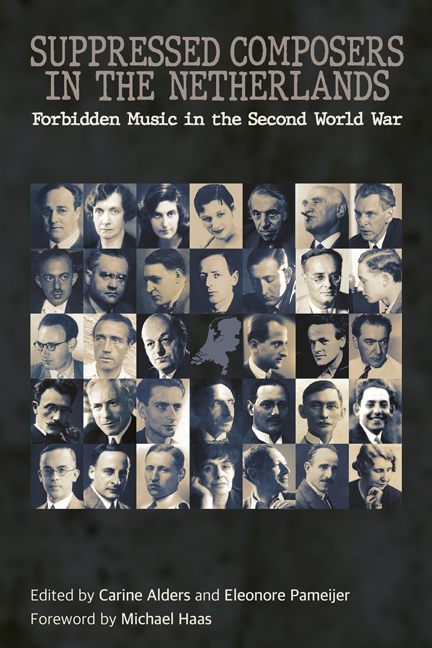23 - Nico Richter
Published online by Cambridge University Press: 09 May 2024
Summary
Almost all Nico Richter's surviving compositions date from his student days, and his talent never reached full maturity. Most of them are extremely short, inspired by Webern and Berg. As a student of medicine, he directed the Amsterdam student orchestra MUSA (the musical branch of the student association Unitas Studiosorum Amstelodamensium). He joined the Dutch resistance, was arrested in 1942 and sent to work in successive concentration camps. By now a physical wreck, he dictated his final composition on his deathbed, just after liberation.
Nico Max Richter was born in Amsterdam on 2 December 1915, the second of three children and the only son of the dentist Izaak Richter and his wife Sara Manheim, who both came from the Dutch province of North Holland. This assimilated Jewish family lived in the Vondelstraat, where Nico's father also practised. The Vondelstraat was and remains the site of the Catholic Vondelkerk, where as a small child Nico often went to listen to the music: there was an Adema organ and both a men's and a boys’ choir.
The young Richters went to the Agatha Deken school, which admitted children from the age of five. They had a professional music teacher, who taught theory to the first and second year. Richter took violin lessons from the ages of seven to fifteen from the viola teacher Jacques Muller. While still at elementary school, he was sometimes taken to the Concertgebouw, where he was impressed by the music and particularly by the conductor.
By the time he started secondary school, shortly before he turned twelve, Richter was already composing. He finished his first worked-out composition, a minuet in Mozart style for violin and piano, at thirteen. At fifteen he moved to a different violin teacher, Sam Tromp, second violin in the Concertgebouw Orchestra. He graduated from school at sixteen, excelling in mathematics and sciences, but was also very interested in languages and literature, as witness the sources of texts for his early compositions: Gezelle, Goethe, Gorter, Heine and Tennyson.
Richter's father insisted that he choose a ‘real’ profession. He enrolled as a student of medicine at the University of Amsterdam in the autumn of 1932 and immediately became a member of Unitas, the progressive student society.
- Type
- Chapter
- Information
- Suppressed Composers in the NetherlandsForbidden Music in the Second World War, pp. 217 - 224Publisher: Boydell & BrewerPrint publication year: 2024

